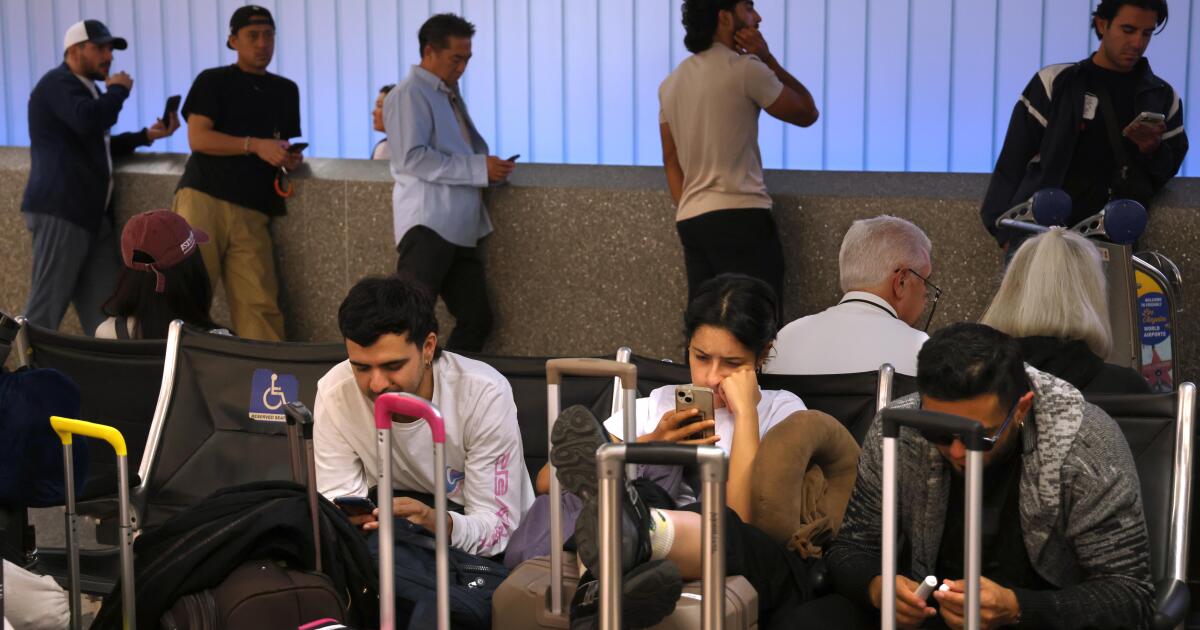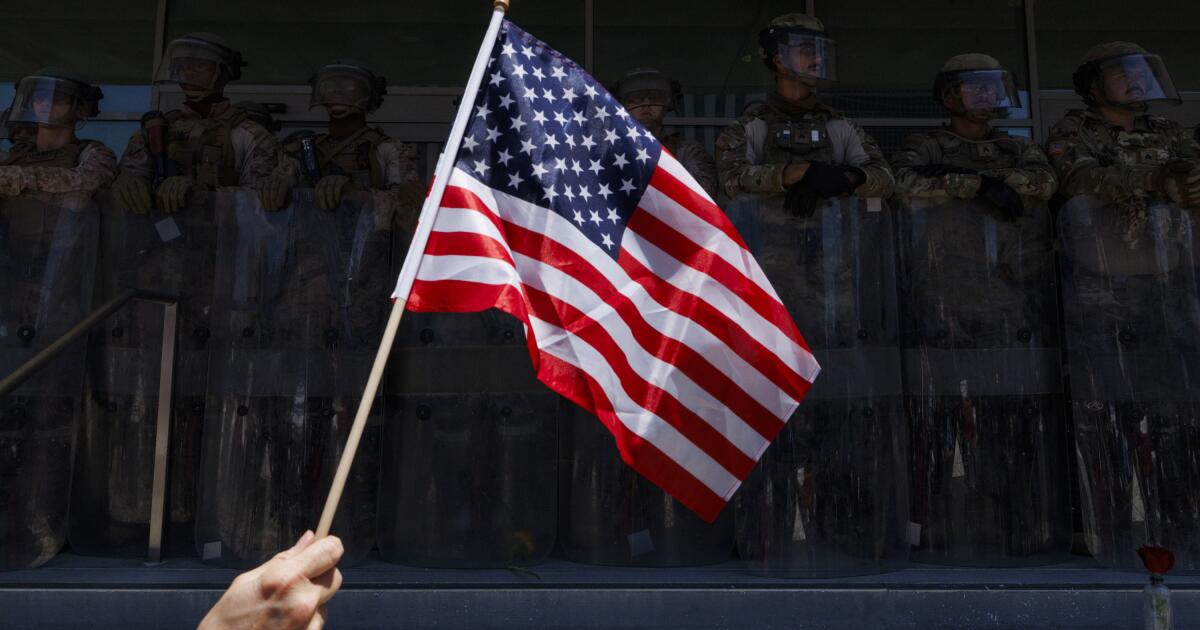Republicans fret as shutdown threatens Thanksgiving travel chaos
WASHINGTON — Republican lawmakers and the Trump administration are increasingly anxious that an ongoing standoff with Democrats over reopening the government may drag into Thanksgiving week, one of the country’s busiest travel periods.
Already, hundreds of flights have been canceled since the Federal Aviation Administration issued an unprecedented directive limiting flight operations at the nation’s biggest airports, including in Los Angeles, New York, Miami and Washington, D.C.
Sean Duffy, the secretary of transportation, told Fox News on Thursday that the administration is prepared to mitigate safety concerns if the shutdown continues into the holiday week, leaving air traffic controllers without compensation over multiple payroll cycles. But “will you fly on time? Will your flight actually go? That is yet to be seen,” the secretary said.
While under 3% of flights have currently been grounded, that number could rise to 20% by the holiday week, he added.
“It’s really hard — really hard — to navigate a full month of no pay, missing two pay periods. So I think you’re going to have more significant disruptions in the airspace,” Duffy said. “And as we come into Thanksgiving, if we’re still in a shutdown posture, it’s gonna be rough out there. Really rough.”
Senate Republicans said they are willing to work through the weekend, up through Veterans Day, to come up with an agreement with Democrats that could end the government shutdown, which is already the longest in history.
But congressional Democrats believe their leverage has only grown to extract more concessions from the Trump administration as the shutdown goes on.
A strong showing in races across the country in Tuesday’s elections buoyed optimism among Democrats that the party finally has some momentum, as it focuses its messaging on affordability and a growing cost-of-living crisis for the middle class.
Democrats have withheld the votes needed to reopen the government over Republican refusals to extend Affordable Care Act tax credits. As a result, Americans who get their healthcare through the ACA marketplace have begun seeing dramatic premium hikes since open enrollment began on Nov. 1 — further fueling Democratic confidence that Republicans will face a political backlash for their shutdown stance.
Now, Democratic demands have expanded, insisting Republicans guarantee that federal workers get paid back for their time furloughed or working without pay — and that those who were fired get their jobs back.
A bill introduced by Republican Sen. Ron Johnson of Wisconsin, called the “Shutdown Fairness Act,” would ensure that federal workers receive back pay during a government funding lapse. But Democrats have objected to a vote on the measure that’s not tied to their other demands, on ACA tax breaks and the status of fired workers.
Senate Majority Leader John Thune, a Republican from South Dakota, has proposed passing a clean continuing resolution already passed by the House followed by separate votes on three bills that would fund the government through the year. But his Democratic counterpart said Friday he wants to attach a vote on extending the ACA tax credits to an extension of government funding.
Democrats, joined by some Republicans, are also demanding protections built in to any government spending bills that would safeguard federal programs against the Trump administration withholding funds appropriated by Congress, a process known as impoundment.
President Trump, for his part, blamed the ongoing shutdown for Tuesday’s election results earlier this week, telling Republican lawmakers that polling shows the continuing crisis is hurting their party. But he also continues to advocate for Thune to do away with the filibuster, a core Senate rule requiring 60 votes for bills that fall outside the budget reconciliation process, and simply reopen the government with a vote down party lines.
“If the filibuster is terminated, we will have the most productive three years in the history of our country,” Trump told reporters on Friday at a White House event. “If the filibuster is not terminated, then we will be in a slog, with the Democrats.”
So far, Thune has rejected that request. But the majority leader said Thursday that “the pain this shutdown has caused is only getting worse,” warning that 40 million Americans risk food insecurity as funding for the Supplemental Nutrition Assistance Program lapses.
The Trump administration lost a court case this week arguing that it could withhold SNAP benefits, a program that was significantly defunded in the president’s “one big beautiful bill” act earlier this year.
“Will the far left not be satisfied until federal workers and military families are getting their Thanksgiving dinner from a food bank? Because that’s where we’re headed,” Thune added.

